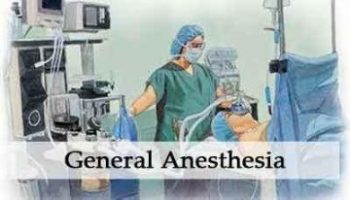- Home
- Editorial
- News
- Practice Guidelines
- Anesthesiology Guidelines
- Cancer Guidelines
- Cardiac Sciences Guidelines
- Critical Care Guidelines
- Dentistry Guidelines
- Dermatology Guidelines
- Diabetes and Endo Guidelines
- Diagnostics Guidelines
- ENT Guidelines
- Featured Practice Guidelines
- Gastroenterology Guidelines
- Geriatrics Guidelines
- Medicine Guidelines
- Nephrology Guidelines
- Neurosciences Guidelines
- Obs and Gynae Guidelines
- Ophthalmology Guidelines
- Orthopaedics Guidelines
- Paediatrics Guidelines
- Psychiatry Guidelines
- Pulmonology Guidelines
- Radiology Guidelines
- Surgery Guidelines
- Urology Guidelines
General anesthetics do more than put you to sleep

A new understanding of the complex ways in which general anaesthetics act on the brain could eventually lead to improved drugs for surgery. It remains unclear how general anaesthesia works, even though it is one of the most common medical procedures worldwide.
University of Queensland researcher, Associate Professor Bruno van Swinderen, said his team had overturned previous understanding of what general anaesthetics do to the brain, finding the drugs did much more than induce sleep.
"We looked at the effects of propofol - one of the most common general anaesthetic drugs used during surgery - on synaptic release," the UQ Queensland Brain Institute scientist said.
The synaptic release is the mechanism by which neurons - or nerve cells - communicate with each other.
"We know from previous research that general anaesthetics including propofol act on sleep systems in the brain, much like a sleeping pill," Associate Professor van Swinderen said.
"But our study found that propofol also disrupts presynaptic mechanisms, probably affecting communication between neurons across the entire brain in a systematic way that differs from just being asleep. In this way it is very different than a sleeping pill."
PhD student Adekunle Bademosi said the discovery shed new light on how general anaesthetics worked on the brain.
"We found that propofol restricts the movement of a key protein (syntaxin1A) required at the synapses of all neurons. This restriction leads to decreased communication between neurons in the brain," he said.
Associate Professor van Swinderen said the finding contributed to understanding how general anaesthetics worked and could explain why people experienced grogginess and disorientation after coming out of surgery.
"We think that widespread disruption to synaptic connectivity - the brain's communication pathways - is what makes surgery possible, although effective anaesthetics such as propofol do put you to sleep first," he said.
"The discovery has implications for people whose brain connectivity is vulnerable, for example in children whose brains are still developing or for people with Alzheimer's or Parkinson's disease.
"It has never been understood why general anaesthesia is sometimes problematic for the very young and the old. This newly discovered mechanism may be a reason."
Associate Professor van Swinderen said more research was needed to determine if general anaesthetics had any lasting effects in these vulnerable groups of people.
"Studying these effects in model systems such as rats and flies allows us to address these questions by manipulating the likely mechanisms involved, which we can't do in humans."
The research involved Professor Frederic Meunier's laboratory at QBI, where super-resolution microscopy techniques enabled the researchers to understand how the anaesthetic worked on single cells. Dr Victor Anggono, whose laboratory at QBI focusses on synaptic mechanisms, was a partner in the study.
For more details click on the link: DOI: 10.1016/j.celrep.2017.12.054

Disclaimer: This site is primarily intended for healthcare professionals. Any content/information on this website does not replace the advice of medical and/or health professionals and should not be construed as medical/diagnostic advice/endorsement or prescription. Use of this site is subject to our terms of use, privacy policy, advertisement policy. © 2020 Minerva Medical Treatment Pvt Ltd